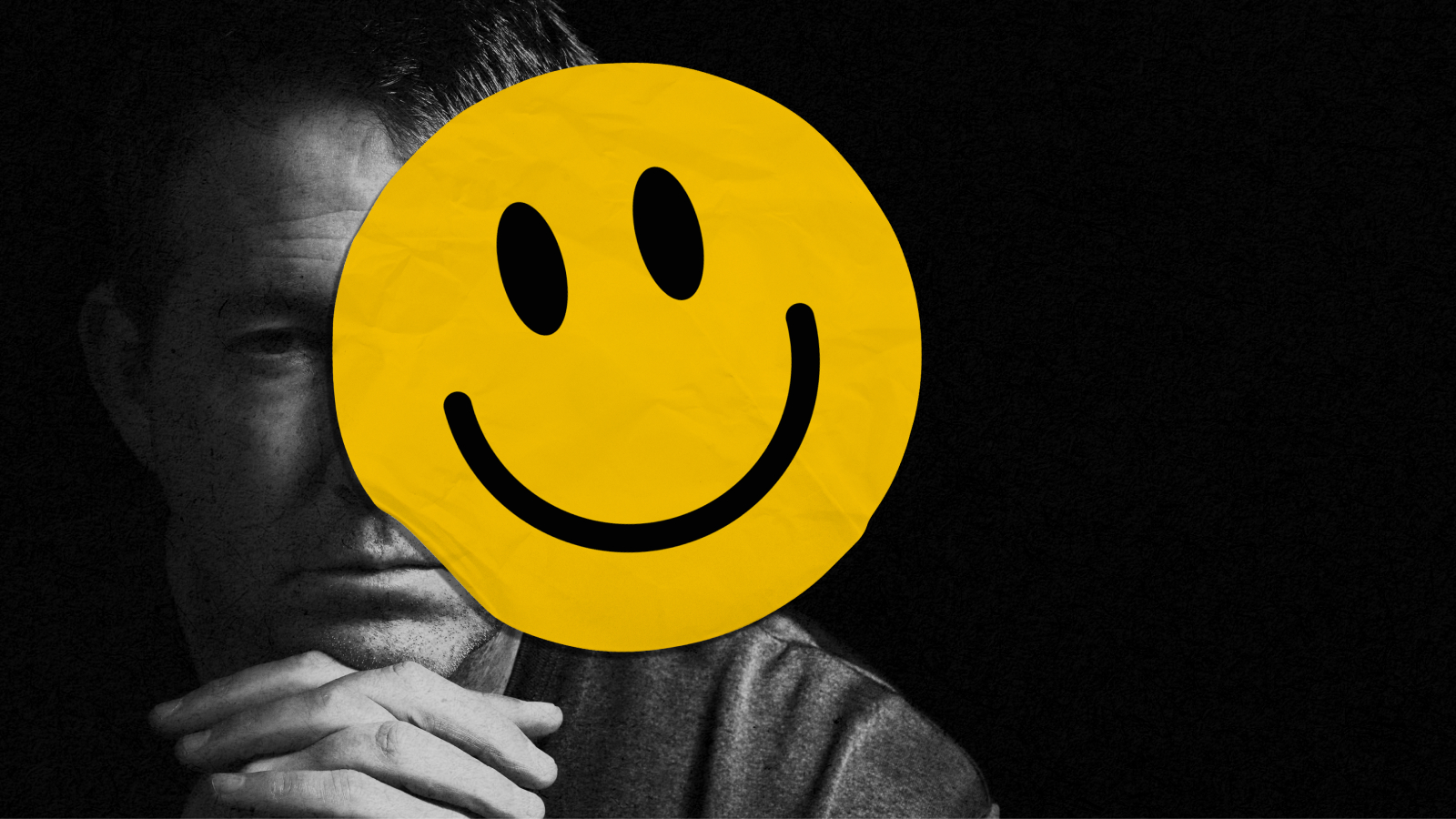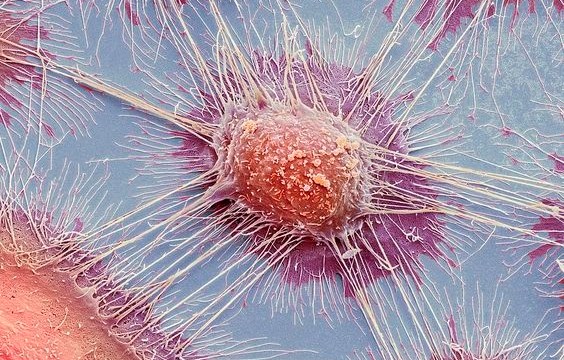Using the logic of neuroscience to heal from a breakup

Photo by Ken Stocker on Shutterstock
- According to a study from anthropologist Dr. Helen Fisher, when humans fall in love, regions of the brain that are rich in dopamine (a neurotransmitter that plays a key role in feeling pleasure) light up and parts of the brain that are used in fear and social judgment are operating at lower rates.
- The surge and decline of hormones in our brains when we experience a breakup are also similar to those felt when withdrawing from an addiction to drugs – and the pain felt during a breakup has appeared on MRI scans as similar to the physical pain felt with a severe burn or broken arm.
- Understanding the neuroscience of heartbreak can help us better understand how to heal from the physical and emotional pain caused by a breakup, according to well-known psychiatrist and author Dr. Guy Winch.
What happens in your brain when you’re in love
While the feeling of being in love is seemingly magical, there are scientific reasons why being in love feels so good. And as such, there are scientific reasons why falling out of love or going through the heartache of a breakup feels so awful.
Biological anthropologist and well-respected human behavior researcher Dr. Helen Fisher published a groundbreaking study in 2005 that included the very first functional MRI images of the brains of people who were in the midst of “romantic love”.
The team of researchers, led by Dr. Fisher, analyzed 2500 brain scans of students who viewed photos of someone special to them (in a romantic capacity) and compared those with scans taken of students who viewed photos of acquaintances.
In the instances where people were shown photos of individuals that they were romantically involved with, the brain would show activity in regions such as the caudate nucleus, which is a region of the brain associated with reward detection and the ventral tegmental area of the brain, which is associated with pleasure and motivation.
These are also areas of the brain that are rich with dopamine, which is a type of neurotransmitter that plays a big role in feeling pleasure. The role of dopamine in our system is to activate the reward circuit, which makes whatever we’re doing at the time a more pleasurable experience that can be equated to the type of euphoria associated with the use of addictive substances such as cocaine or alcohol.
Not only does the human brain work to amplify positive emotions when it experiences love, but the neural pathways that are responsible for negative emotions such as fear are deactivated. When we are engaged in what is considered “romantic love,” the neural mechanism that is responsible for making assessments of other people and formulating fear-based thoughts shuts down.
A 2011 study conducted at Stony Brook University in New York (which also included Dr. Fisher) concluded that it’s possible to feel these effects with someone even after decades of marriage.
The study looked at MRI scans of couples who had been married an average of 21 years, and while the euphoria that comes with falling in love may have changed, the same heightened levels of activity in dopamine-rich areas of the brain that were found in new couples were also seen on these MRI scans.
When we are in love, our bodies are actively producing feel-good hormones and denying the release of negative hormones – and when this process suddenly stops, the “withdrawal” we feel can be extremely difficult to process both on an emotional and physiological level.
What happens in your brain when you’re going through a breakup
A study performed by researchers Lucy Brown, Xiomeng Xu, and Dr. Fisher scanned the activity in the brains of 15 young adults who had all experienced unwanted breakups yet still reported feeling “in love” with the person.
All of these individuals were in various stages of break up. Some still sent messages to their loved ones that went unanswered, and some simply feeling depressed that the relationship was over.
The individuals were shown photos of their former partners, and the scans taken during this time showed activity in several different areas of the brain, including the ventral tegmental, the ventral striatum, and the nucleus accumbens. All three areas are a part of our reward/motivation system, which communicates through the release of dopamine.
There is a direct link between those who have experienced rejection from someone they love (an ex-partner, for example) and those who have experienced withdrawal from addictive substances.
“Romantic love can be a perfectly wonderful addiction when it’s going well…and a perfectly horrible addiction when it’s going poorly.”
– Helen Fisher
What if we cared for broken hearts the same way we care for broken bones?
According to Dr. Guy Winch, psychologist and author of “How to Fix a Broken Heart,” heartbreak is a form of grief and loss that can cause serious issues with insomnia, anxiety and even depression or suicidal thoughts. According to Winch, who is known to specialize in “emotional first aid,” heartbreak should be taken very seriously, as should our efforts to recover from it.
Columbia University cognitive neuroscientist Edward Smith completed a series of studies and tests in 2011 that proved the pain we feel during heartbreak is similar to physical pain we might feel due to a severe burn or broken arm.
In these studies, the goal was to see what happens in the brains of people who have recently been through a breakup with a long-term partner.
In the MRI images of these people struggling with recent heartbreak, the parts of the brain that lit up were the same parts of the brain that are active when you experience physical pain.
Dr. Winch, in an interview with Blinkist Magazine, explained a similar study that he was a part of where physical pain that was rated as level 8 (on a scale of 1-10, with 10 being almost intolerable pain) showed similar results to an MRI taken by someone who had just talked about and relived their breakup.
The physical pain, which only lasted 7 seconds, registered the same in the patient’s brain as the emotional pain of the breakup, which for some can last for days, weeks, or even months.
Understanding this link between heartbreak and physical pain should allow us to take a more all-encompassing approach to heal from the pain of a breakup.

“It’s not just about time and waiting it out – it’s about taking steps.” – Dr. Guy Winch
Photo by Tero Vesalainen on Shutterstock
Using logic and neuroscience to heal from a breakup
There are a few things we can do that are essential to surviving and healing from heartbreak, based on what we know from these studies.
Avoiding visual reminders of your ex-partner may seem like an obvious answer to help you recover, but sentimental reminders such as pictures or revisiting places you used to spend time with them are very likely to create dopamine surges in your brain that relate to feelings of craving and withdrawal.
Replacing those surges of dopamine is the next positive step: taking up a fitness class or joining a gym is something many people do to “power through” a breakup, but exercise can also lead to the release of endorphins that trigger a positive feeling throughout the body and brain.
Finding a “new normal” after a heartbreak can seem impossible – but one of the first things you need to do is to recalibrate your mind. Making a list of reasons your ex-partner wasn’t perfect or being honest with yourself about parts of that relationship that were negative or unhealthy can be the beginning of resetting your system to see things in a more true light.
According to Dr. Winch, one of the biggest hurdles to recalibrating your mind and adapting to life without your ex-partner is that we don’t find closure.
Winch suggests that we try to accept the reason for the breakup or even find another reason. Maybe the relationship would not have worked out because you wanted different things in life or because they were not emotionally available for you. Finding logic in heartbreak can be a good start to the healing process.





